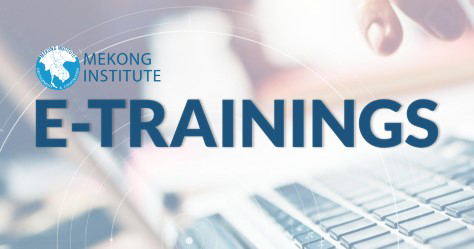Mekong Institute (MI) has diversified its portfolio of services to include e-trainings, web forums, e-workshops, and remote research activities to reach a broader range of stakeholders and fulfill 2020 commitments to partners and beneficiaries against a COVID-19 landscape.
“We transformed our existing training modules to ensure a highly participative, engaging, and comprehensive virtual experience for our participants,” Dr. Watcharas Leelawath, MI Executive Director said. He added that the online trainings are a first in MI’s 23-year history, underscoring the intergovernmental organization’s responsiveness to the evolving development needs of governments, institutions, and people in the Greater Mekong Subregion (GMS).
Beginning in July, MI will roll out a series of e-trainings on green freight logistics, cross-border trade, special economic zone management, e-commerce and smart tourism. Tailored to suit the requirements of governments, business groups, the academe, and private sector, the e-trainings are a blend of live online sessions and self-paced learning for optimum knowledge retention and transfer.
Other than these activities, MI’s Trade and Investment Facilitation (TIF) Department will also lead the completion of e-workshops and e-forums through secure digital platforms. It will also conduct remote research activities such as key informant interviews and surveys in selected GMS countries via Zoom and Microsoft Team. These proactive measures were designed to safely continue MI’s work in supporting human resource development and capacity building.
“We have tapped thematic experts to facilitate our e-workshops, trainings, and e-forums. We have also secured state-of-the-art digital hardware and software to ensure that our range of e-services are paced in seamless concert to ensure sustainable learning and knowledge exchange,” Mr. Madhurjya Kumar Dutta, Director of MI’s TIF Department, said.
“Bottom line, our commitment is to make accessible our services, as the demand for our e-trainings, workshops, and research services are high,” Mr. Dutta ended.
From June to December 2020, TIF will roll out 19 online activities for participants representing Cambodia, P.R China, Lao PDR, Myanmar, Vietnam and Thailand. Majority of these are supported by the Lancang-Mekong Cooperation Special Fund and the Mekong-Republic of Korea Cooperation Fund.
For more information on upcoming MI online activities, please visit www.mekonginstitute.org/e-training








